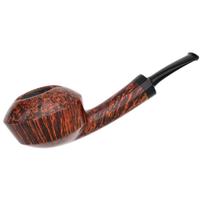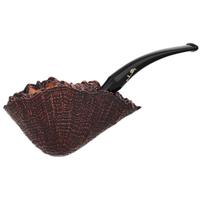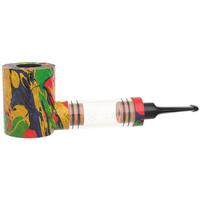Are those supposed to be the crises?While, the other type... they are able to quickly figure out a way around a flat tyre, checking account over drafted, strange rash (you know where)
Crisis Mode Vs. Standard Mode
- Thread starter puff_not_snuff
- Start date
You are using an out of date browser. It may not display this or other websites correctly.
You should upgrade or use an alternative browser.
You should upgrade or use an alternative browser.
I learned in my professional career to become more of a planner and pay attention to detail versus being a firefighter. Most fires can be prevented. It's a behavioral thing. Regardless of how good someone thinks they work under stress, more mistakes are made leading to time wasted. Which leads to more fires and more stress. It's a vicious circle that's difficult to break out of.
Time management is huge but necessary to break the habit. Developing the discipline to finish tasks or projects 100% instead of 90% and then letting them sit is of paramount importance. It's mostly an attitude thing.
Anybody that consciously chooses to operate in firefighter mode is asking for disaster. In general it's a choice.
Time management is huge but necessary to break the habit. Developing the discipline to finish tasks or projects 100% instead of 90% and then letting them sit is of paramount importance. It's mostly an attitude thing.
Anybody that consciously chooses to operate in firefighter mode is asking for disaster. In general it's a choice.
Are those supposed to be the crises?
By definition, yes. For more than a few they are serious crises. For others? Just a mild crisis. A crisis can be anything from a predicament (flat tire) to a catastrophe by definition. Some people reserve the use of it only for circumstances which might have serious consequences. A flat tire at speed is certainly a crises. A flat tire on the way for a job interview is certainly a crises. Running out of gas could be a serious crises for the girl on a first date. Her date would consider it . . . well, enough said.
Experience/conditioning have made crisis mode natural, practice and training are making standard doable. Thank god for my wife haha.
No matter what I’m facing, I always attack the hardest task first, then it’s all gravy after that.
As the shop foreman in a 2 brand dealership, there are always fires raging. My job is all about contain and correct. Planning a day is just scheduling chaos and making order from it.
Responses are rooted in nearly 40 years of experience. Save the virgin blood for the newbies!
As the shop foreman in a 2 brand dealership, there are always fires raging. My job is all about contain and correct. Planning a day is just scheduling chaos and making order from it.
Responses are rooted in nearly 40 years of experience. Save the virgin blood for the newbies!
By definition, yes. For more than a few they are serious crises.
I often do something similar. I do the task i hate most first. I also try to follow Covey's teaching, that is, do the tasks that are urgent and important first, those that are important but not urgent second. I see way too many people caught in the busyness tap by often takes that are urgent but not important.No matter what I’m facing, I always attack the hardest task first, then it’s all gravy after that.
As the shop foreman in a 2 brand dealership, there are always fires raging. My job is all about contain and correct. Planning a day is just scheduling chaos and making order from it.
Responses are rooted in nearly 40 years of experience. Save the virgin blood for the newbies!
Are those supposed to be the crises?
Tyre is the British spelling of tire.
I wasn't writing for a singularly British audience.

I wasn't writing for a singularly British audience.
Blimey!
In my line of work EVERYTHING IS A CRISIS, at least that's what all of the customers I interact with say. Crisis mode is essentially my baseline. That means my idea of what an actual crisis is has been some what attenuated by my repeated daily interactions. When I first started this job I had a hard time keeping my stress level in check when everyone around me is running around with there hair on fire, over the years I've learned to mange that a lot better.
I eat stress for breakfast, and wash it down with a cup of hot regret. But of course, this is why I spend so much time in the bathroom. 

When my freelance illustration career was in full gear, there were a lot of overnight jobs, which were very stressful. The tight deadline created pressure and forced creativity into overdrive; I sometimes think that pressure was necessary to find a solution to the problem at hand—it forced you to dig deeper, and made you think outside the box if necessary, often resulting in a more original end product. I used to thrive on getting the jobs done over a short period of time and moving on.
As time has gone on, I've grown to appreciate more immersive projects with longer, open deadlines, and crafting things to my satisfaction over time. That's not always possible because deadlines are always looming, but it's nice to have the luxury of shaping a project carefully, reviewing it a little later with fresh eyes, and tweaking it until it feels it's as good as it can be.
As time has gone on, I've grown to appreciate more immersive projects with longer, open deadlines, and crafting things to my satisfaction over time. That's not always possible because deadlines are always looming, but it's nice to have the luxury of shaping a project carefully, reviewing it a little later with fresh eyes, and tweaking it until it feels it's as good as it can be.
With animation, particularly television animation, budgets are tight, crews are very light, schedules are unrealistic, and if people aren't really expert at what they do, the whole affair comes unraveled very quickly. There's almost no margin for mistakes.When my freelance illustration career was in full gear, there were a lot of overnight jobs, which were very stressful. The tight deadline created pressure and forced creativity into overdrive; I sometimes think that pressure was necessary to find a solution to the problem at hand—it forced you to dig deeper, and made you think outside the box if necessary, often resulting in a more original end product. I used to thrive on getting the jobs done over a short period of time and moving on.
As time has gone on, I've grown to appreciate more immersive projects with longer, open deadlines, and crafting things to my satisfaction over time. That's not always possible because deadlines are always looming, but it's nice to have the luxury of shaping a project carefully, reviewing it a little later with fresh eyes, and tweaking it until it feels it's as good as it can be.
My impression is that Design is working in that slower contemplative manner, as if they're working on a Theatrical Feature with oodles of budget and time to waste. Either that, or they're all stoned burn outs, which also wouldn't surprise me. This impacts color so that we're always battling schedule in crisis mode, launching one offensive after another to hit our deadlines. It's one of the reasons I refuse to send fucked up stuff back to design if I can fix it in minutes as it will take weeks for them to turn it around. It pisses Design off, but I don't care.
Personally, I've had it with crisis mode. Being under pressure never made me more creative, I just made different choices to get to a satisfactory finish, sort of like painting with acrylics rather than oils. My preference is for more time to get a more developed result while not frying my nervous system.
One of the benefits of reaching a certain age with a bit in the bank is that you can happily say no to ridiculous demands. Shocks the hell out of these geniuses. They're used to watching people fall on the grenades for them.
I agree. When I say P,P,P again, what I am saying is I always work on the contingency.I learned in my professional career to become more of a planner and pay attention to detail versus being a firefighter. Most fires can be prevented. It's a behavioral thing. Regardless of how good someone thinks they work under stress, more mistakes are made leading to time wasted. Which leads to more fires and more stress. It's a vicious circle that's difficult to break out of.
Time management is huge but necessary to break the habit. Developing the discipline to finish tasks or projects 100% instead of 90% and then letting them sit is of paramount importance. It's mostly an attitude thing.
Anybody that consciously chooses to operate in firefighter mode is asking for disaster. In general it's a choice.
I really always seem to try and see how something will fail and then address it before it can happen. I think thats why after the plan, I don't worry about it until it happens.
When it does, I already have a scenario ready.
I really do think I should of followed through with becoming a LEO. Went into business instead. At 46, it's one of my life regrets.
I hear ya. I two am a dealership guy. Lucky me, I run the warranty department, where everything is a crisis 24-7!No matter what I’m facing, I always attack the hardest task first, then it’s all gravy after that.
As the shop foreman in a 2 brand dealership, there are always fires raging. My job is all about contain and correct. Planning a day is just scheduling chaos and making order from it.
Responses are rooted in nearly 40 years of experience. Save the virgin blood for the newbies!
Your job is essential, and too often, overlooked. I learned long ago to appreciate the people and positions that keep it all together!I hear ya. I two am a dealership guy. Lucky me, I run the warranty department, where everything is a crisis 24-7!
and get us paid…
I'm habitual and ritualistic in the mundane. It brings me comfort, and knowing is key to me relaxing. I struggle with a very light case of anxiety, so I take measures to be able to genuinely leisure. I'm not naturally attracted to newness. It doesn't bring me healthy excitement or joy. It throws a pipe in my spokes. But, while I'm regimented, like lists, do prefer to plan, I also live by the motto, "Nothing I'm doing right now is actually THAT important. (nearly) Everything can wait another day. The world won't stop spinning, and my world won't stop either." So I like organization, but I'm also a procrastinator. My goal is peace of mind. Whatever it takes for that. I'm not particularly adept in crisis mode for obvious reasons, but I could certainly be worse at it. The funny thing is that if my life is in a Zen state, I can approach crisis with a more calm method. If I'm in a state of anxiety, crisis is all hell is breaking loose.
I sometimes think that pressure was necessary to find a solution to the problem at hand—it forced you to dig deeper, and made you think outside the box if necessary, often resulting in a more original end product.
I think this was amply demonstrated in The Agony and the Ecstasy. The obvious takeaway from the movie was every time Julius II whacked Michelangelo with his ferula (and no, that’s not a euphemism) the frescoes got a little bit better.













